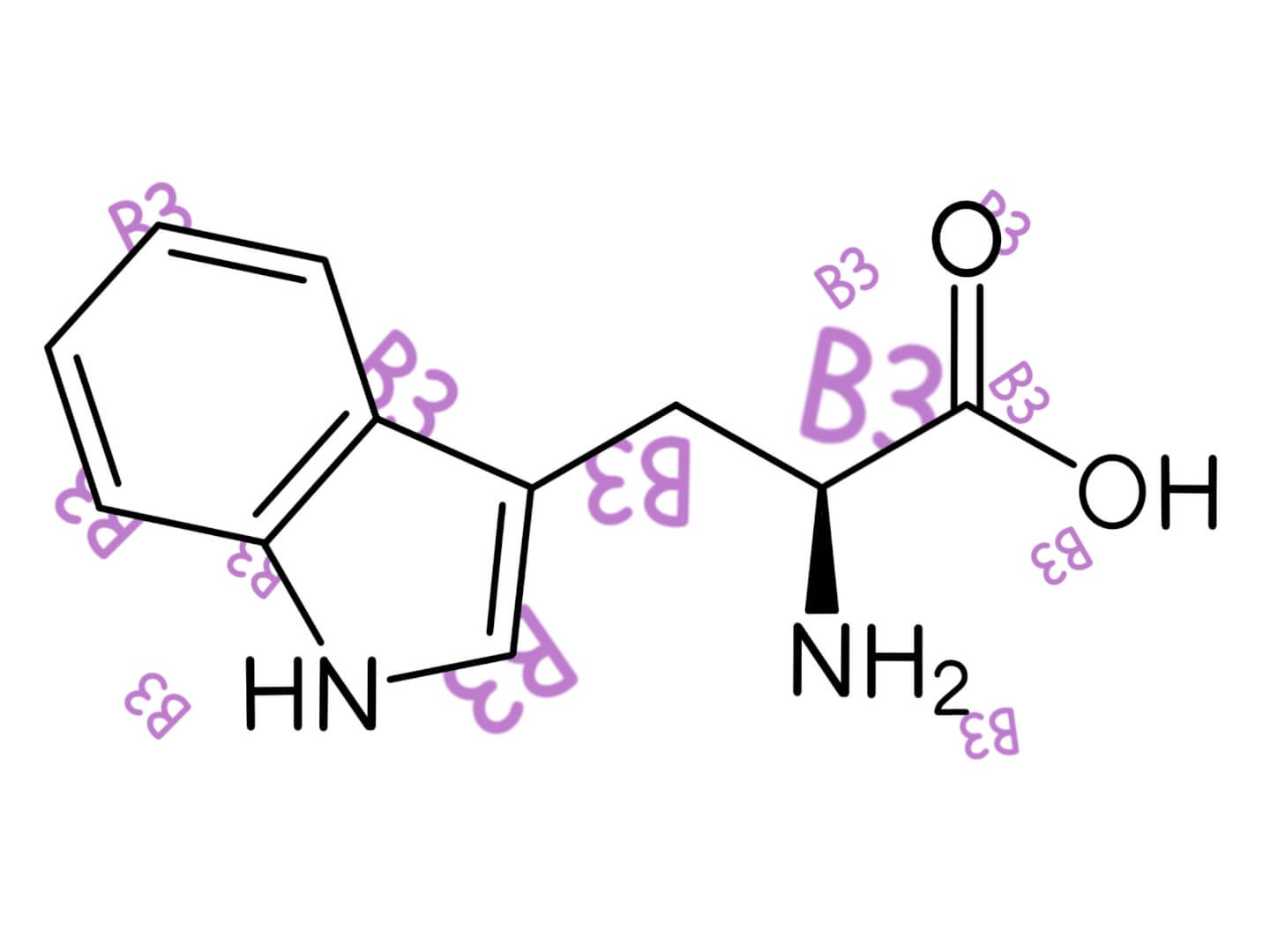Tryptophan and Vitamin B – Part I

Tryptophan is a very industrious amino acid. As an essential amino acid, tryptophan must be eaten in our diet. It does its job by assisting and boosting multiple systems in our body to also do theirs. Tryptophan is the nutritional social worker in our body who helps everyone else but risks getting worn out and depleted in the process.
Once we eat tryptophan in a protein-based food, it can be converted into serotonin during the day and melatonin at night. However, the main route for tryptophan is the production of vitamin B3. In fact, more than 90% of the tryptophan we eat becomes vitamin B3 when we are stressed and have not eaten enough of this important vitamin. If we consume enough vitamin B3, the route from tryptophan to vitamin B3 is interrupted and most of the tryptophan we consume becomes serotonin and melatonin. Therefore, vitamin B3 is known as a “stress” vitamin.
The interesting history of tryptophan and vitamin B3 goes back more than a century, when an illness you’ve probably never heard of, pellagra, ravaged populations. It caused sporadic “epidemics” characterized by an increase in anxiety, insomnia, rashes and cognitive impairment. Because Pellagra was found in a population, it was thought to be a viral disease. Ultimately, however, diet was determined to be the culprit. Scientists were able to conclude that vulnerable people ingested a poor diet containing essentially no tryptophan and no vitamin B3. Fortunately, this illness, once identified, was easily rectified. The solution was to add vitamin fortification to certain common foods like bread and pasta.
A low-tryptophan containing diet is still a risk in our modern, prosperous, relatively well fed western culture. Tryptophan deficiency may be present in those who rely on low-quality proteins or focus on carbohydrates. Pretzels and beer may be delicious, but they must be regarded as exceptions. A healthy diet of a variety of whole, unprocessed foods goes a long way to supplying our bodies with sufficient tryptophan and the vitamins to prevent tryptophan distraction and allow it to metabolize to serotonin and melatonin.


